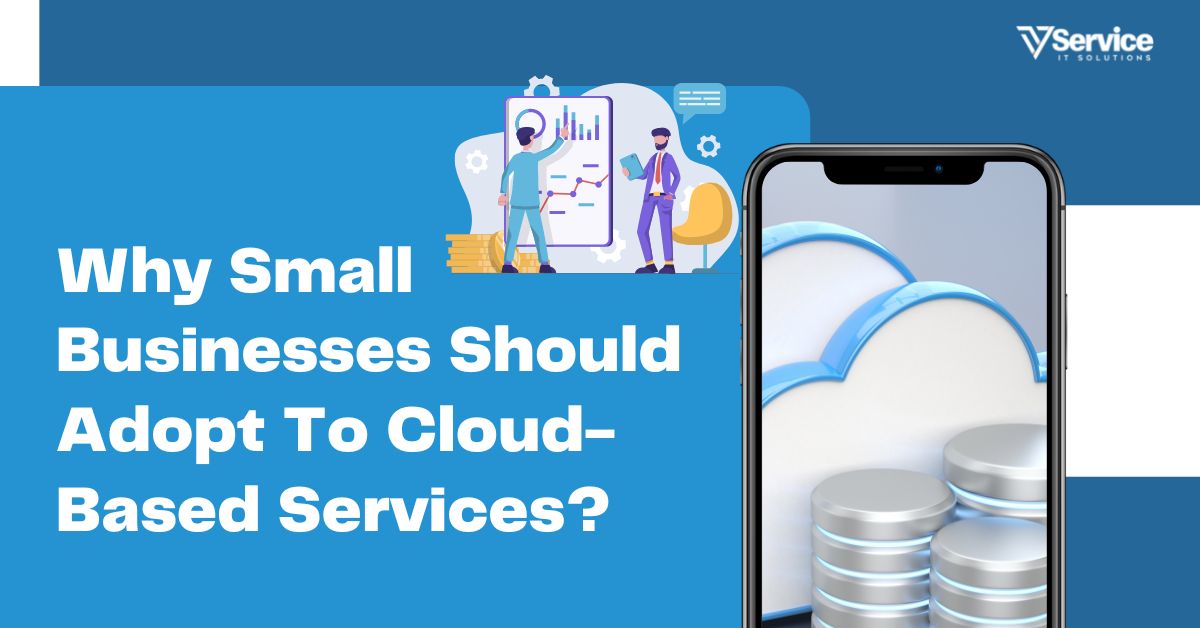Why Small Businesses Should Adopt To Cloud-Based Services?

While many organizations continue to rely on obsolete technology and in-house solutions, we believe it’s time for your company to move forward. Consider a managed cloud service provider if you’re ready to revolutionize your organization but don’t know where to start.
Today, we will investigate why managed cloud services are at the forefront of business technology.
What Businesses Enjoy
Cloud solutions can provide businesses with various IT benefits, including decreased costs and more flexibility. Among the firms polled by PC Connection, the top factors driving cloud interest are as follows:
Improved Data Backup and Disaster Recovery Services
42% of firms cite backup and recovery as the primary reason for their interest in cloud computing. The procedure is automated, and backups may be retrieved after physical or digital disasters because the data is kept on a secure distant server.
Always-Available Access to Information and Programs
Forty percent of firms strongly appreciate the ability to access applications and data at any time from any device. This level of flexibility is a significant advantage of cloud computing as business boundaries continue to move and more individuals work from mobile devices.
Reduction of Required Local Infrastructure
A complicated IT infrastructure requires time, money, and space to maintain. Reducing the requirement for physical hardware is the most appealing cloud feature for 38 percent of enterprises.
Capacity Scalability and Adaptability
With cloud computing, your business just pays for the storage and bandwidth you utilize. If you need more capacity or speed, all you have to do is increase your plan, as opposed to investing in new hardware and servers and spending weeks or months implementing it.
A Group Of Qualified Cloud Computing Service Providers
The cloud is a team sport; you need a dependable IT staffing solution to assist with the development of your project. The more talented your team is, the greater your success.
You can rest certain that your data is secure at all times, even when no one is watching. You may scale up or down as needed, so saving money and avoiding costly upgrades. And with a team giving help every step of the way, from setting up hardware to upgrading software and applications, managing your cloud infrastructure requires no guesswork.
Why Companies Don’t Jump in Yet
Every system has its pros and cons, and despite all the press cloud computing receives, not all businesses are convinced. While 50% of businesses are in the process of migrating at least some apps to the cloud, 31% have no intentions to make the transition. As a result, businesses continue to have significant worries over cloud platforms.
Security
65 percent of firms cite security concerns as the primary barrier preventing them from deploying cloud infrastructures, which comes as no surprise.
Integration of Existing Systems
34 percent of firms questioned are concerned that cloud platforms will not integrate smoothly with their existing networks, applications, and systems.
System Capacity and Availability
If a cloud service provider experiences technical difficulties, its clients may be unable to access the programs and data they require to complete their tasks. This is a leading worry for 33% of organizations.
Regulatory and Legal Compliance
Organizations that deal with sensitive data must adhere to specific standards and protocols regarding the processing, storage, and transmission of said data. Due to regulatory concerns, 32% of firms are hesitant to utilize cloud solutions.
Inadequate Standards
As with the majority of emerging technologies, cloud service providers have yet to develop uniform standards, and the market is mostly unregulated. 28 percent of organizations are concerned about the prospect of issues developing from this.
Small Hurdles, Big Changes
Many of the remaining doubts corporations have about cloud computing are likely to be overcome as cloud computing vendors enhance their technology and services. As cloud technology improves, many of these difficulties will be rectified, allowing more enterprises to enjoy the advantages of a cloud-based environment.
Conclusion
A cloud is an incredible tool that enables us to expand scalability, implement faster software delivery pipelines, and collaborate with the greatest builders and partners on business-appropriate initiatives. It is a game-changer for many firms, but it cannot be seamlessly integrated into your existing business infrastructure. We enjoy managed cloud services because it takes care of all the intricate details, allowing your CTOs to focus on what matters most: developing your business to its fullest potential. In conclusion, managed cloud services conserve time, money, and energy. Clearly, not all organizations are convinced of cloud computing’s benefits. And perhaps it still has some growing up to do as a technology. However, it is evident that the obstacles it must overcome are considerably smaller than its potential.
Where should you begin your cloud journey? Get in touch with our consultants who will walk you through the process and give you reasons why it will give you ROIs for your business.
Author :
Madan
Head of Sales and Business Development, responsible for ensuring optimal company performance and keeping track of client service level agreements. And this is simply my daily routine!
I enjoy planning and implementing effective maintenance to assure compliance with all disaster recovery plans while I am not working on my next project. I support technical employees in analysing and resolving difficulties in order to meet all objectives, designing and maintaining all IT processes using standardisation techniques, and maintaining all documentation for various tasks.
Latest Blogs
Get New Solution for your Problem
Still can’t find answers to your challenges. Get in touch with our experts
